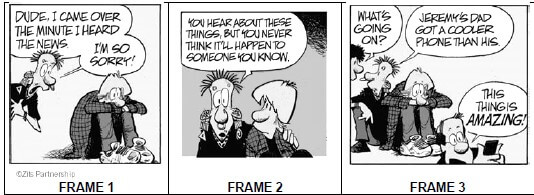ENGLISH FIRST ADDITIONAL LANGUAGE PAPER 1 GRADE 12 QUESTIONS - NSC PAST PAPERS AND MEMOS SEPTEMBER 2016
Share via Whatsapp Join our WhatsApp Group Join our Telegram GroupEnglish First Additional Language
Paper 1 (P1)
Grade 12
Nsc Past Papers And Memos
September 2016
INSTRUCTIONS AND INFORMATION
- This question paper consists of THREE sections.
SECTION A: Comprehension (30)
SECTION B: Summary (10)
SECTION C: Language (40) - Answer ALL the questions.
- Read ALL the instructions carefully.
- Start EACH section on a NEW page.
- Leave a line between answers.
- Number the answers correctly according to the numbering system used in this question paper.
- For multiple-choice questions, write only the question number and the letter (A–D) of the correct answer.
- Pay special attention to spelling and sentence construction.
- Use the following time frames as a guide:
SECTION A: 50 minutes
SECTION B: 30 minutes
SECTION C: 40 minutes - Write neatly and legibly.
QUESTIONS
SECTION A: COMPREHENSION
QUESTION 1
Read both TEXT A and TEXT B and answer the set questions.
TEXT A
THREADING HISTORY In Ghana, beads are more than adornments. They are symbolic cultural objects that have become custodians of the country’s history and heritage.
[Adapted from Sawubona, June 2014] |
Glossary:* bauxite clay-like substance from which aluminium is obtained
NOTE:
- Answer ALL the questions in your OWN WORDS.
- For one-word answers, write only the question number and the word.
- For multiple-choice questions, write only the question number and the letter (A–D) of the correct answer.
1.1 Quote a SINGLE word from the subheading that has a similar meaning to ‘decorations’. (1)
1.2 What continent is being referred to in paragraph 1? (1)
1.3 Refer to paragraph 2: Why is the parking lot empty? (2)
1.4 What is being sold at these stalls? (1)
1.5 In your OWN words explain how the atmosphere at the markets in Ghana differs from that in Koforudua. (2)
1.6 The phrase ‘bargaining becomes spirited’ (line 11) means bargaining ...
- takes place reverently.
- is done in a lively manner.
- is done in a sombre manner.
- takes place spiritually. (1)
1.7 Discuss the effectiveness of the writer’s use of the simile, ‘even the tiniest one is treated like a diamond’ (line 12–13). (3)
1.8 Mention THREE instances in the Ghanaian culture where beads play an important role. (3)
1.9 Indicate whether the following statement is TRUE or FALSE. Give a reason for your answer.
In West Africa beads serve a dual purpose. (1)
1.10 Why is the title ‘Threading history’ suitable for the passage? (2)
1.11 Why are Bodom beads valued even today? (2)
1.12 Refer to paragraph 9.
Explain why the parking lot can be regarded as one of Africa’s ‘most unlikely heritage sites’. (2)
1.13 After reading the passage, would you consider the exportation of beads to be an advantage or a disadvantage to the people of Ghana? Give a reason for your answer. (3)
TEXT B

1.14 How does the picture depict a vacation atmosphere? State TWO points. (2)
1.15 What message is this advertisement trying to convey? (2)
1.16 Refer to the table:
How much will the cheapest flight cost you? (1)
1.17 What gift is SA Express offering its clients? (1)
TOTAL SECTION A: 30
SECTION B: SUMMARY
QUESTION 2
You have been asked to deliver a speech on how to lose weight.
Read the passage below (TEXT C) and list SEVEN points that you will include in the text of your speech on how to lose weight.
INSTRUCTIONS
- Your summary must be written in point form.
- List SEVEN points in full sentences, using not more than 70 words.
- Number your sentences from 1 to 7.
- Write only ONE point per sentence.
- Use your OWN words as far as possible.
- Indicate the total number of words you have used in brackets at the end of your summary.
TEXT C
HOW TO LOSE WEIGHT Losing weight does not have to mean a complete life overhaul. The difference between being fat and slim is as little as 419 kJ a day. [Adapted from: Discovery, Summer 2012] |
TOTAL SECTION B: 10
SECTION C: LANGUAGE
QUESTION 3: ANALYSING AN ADVERTISEMENT
Study the advertisement (TEXT D) and answer the set questions.
TEXT D
3.1 Who is the target audience? Give a reason for your answer. (2)
3.2 Why do you think the advertiser has included the pictures and signatures of these two cricket legends? Your answer must refer to the pictures and the signatures. (2)
3.3 What is the purpose of including the website address:
www.advancedhair.co.za? (1)
3.4 Choose the correct answer to complete the following sentence. Write down ONLY the question number (3.4) and the letter (A–D) of the correct answer.
‘A complimentary Hair Check’ means that the clinic will ...
- check your hair free of charge.
- charge you to check your hair.
- praise the condition of your hair.
- check your hair for lice. (1)
3.5 Mention the institution where this procedure is done. (1)
3.6 What does the phrase ‘strand-by-strand’ suggest about the time it will take for the hair to regrow? (1)
3.7 In your view, do the pictures in the advertisement support the message of the advertisement? Explain fully. (2) [10]
QUESTION 4: ANALYSING A CARTOON
Read the cartoon (TEXT E) below and answer the set questions.
TEXT E
ZITS 
NOTE: In this cartoon, Jeremy’s friends are visiting him. Jeremy’s dad is the man with the cell phone in his hand. |
4.1 Refer to frame 1.
4.1.1 What visual clue does the cartoonist use to show that Jeremy’s friend arrived in a hurry? (1)
4.1.2 What visual technique does the cartoonist use to show that Jeremy is sulking? (1)
4.2 Refer to frame 2.
How do you know that Jeremy’s friend is trying to comfort him? (1)
4.3 Quote an informal word from the cartoon that is often used by teenagers. (1)
4.4 Refer to frame 3.
Jeremy’s dad’s behaviour can cause Jeremy to feel worse because his dad ...
- is silently enjoying his new phone.
- did not greet his friends.
- is aware of his mood.
- expresses how remarkable his phone is. (1)
4.5 Consider the cartoon as a whole. Explain why the statement by Jeremy’s friend in frame 3 can be considered to be an anti-climax. (3)
4.6 Consider the cartoon as a whole. Do you think Jeremy’s behaviour can be justified? Discuss your view. (2) [10]
QUESTION 5: LANGUAGE AND EDITING SKILLS
5.1 Read the passage (TEXT F) below, which has some deliberate errors, and answer the set questions.
TEXT F
CHRIS HONOURED FOR 275 BLOOD DONATIONS
[Adapted from PE Express, 11 November 2015] |
5.1.1 Correct the SINGLE error in each of the following sentences. Write down ONLY the question number (5.1.1(a)–(d)) and the words you have corrected.
- Chris Bester recieved his 275th blood donation milestone award during the Port Elizabeth donor award function. (1)
- The function were held on 4 November. (1)
- During his time at this hospital, he experienced horrific trauma scenes and the challenges of not having excess to sufficient blood. (1)
- A couple of years later, he finally signed in as a blood donor. (1)
5.1.2 Rewrite the following sentence in the singular form:
These scenes made a lasting impression on Chris. (2)
5.1.3 Refer to the following sentence:
As a blood donor, he knew that his blood group was O positive, compatible with all other rhesus positive blood groups.
Provide an antonym for the word compatible by using a prefix. (1)
5.1.4 Rewrite the following sentence in the present continuous tense:
Chris worked in Malawi for two years. (1)
5.1.5 Change the following sentence into a tag question:
There was quite a bit of commotion in the hospital. (1)
5.1.6 Choose the correct answer to complete the following sentence. Write down ONLY the question number (5.1.6) and the letter (A–D) of the correct answer.
He approached the Irish doctor.
The underlined word is an example of ...
- a definite article.
- an indefinite article.
- a preposition.
- an abstract noun. (1)
5.1.7 Rewrite the following sentence in the passive voice:
The doctor arranged a direct transfusion. (1)
5.1.8 Rewrite the following sentence in reported speech:
Chris said, “For me it is about being healthy enough to donate blood.” (3)
5.2 Study the following text (TEXT G) and answer the set questions.
TEXT G
[Adapted from You, 27 August 2015] |
5.2.1 Choose the correct word from those given in brackets. Write ONLY the question number (5.2.1(a)–(b)) and the words.
- Being kind has a positive (affect/effect) on people. (1)
- We should strive to make the world a (best/better) place. (1)
5.2.2 Rewrite each of the following sentences and give the correct form of each word within brackets.
- Some people are (natural) caring but all of us can choose to be compassionate. (1)
- Sometimes compassion can be a (pretend). (1)
- Many countries have produced compassionate people who have become an (exemplary) to humanity. (1)
5.2.3 Rewrite the following sentence, inserting the apostrophe in the correct place.
People who are sincerely kind often choose to be doctors or nurses to make a difference in peoples lives. (1) [20]
TOTAL SECTION C: 40
GRAND TOTAL: 80
